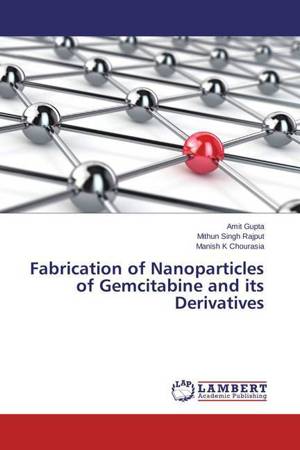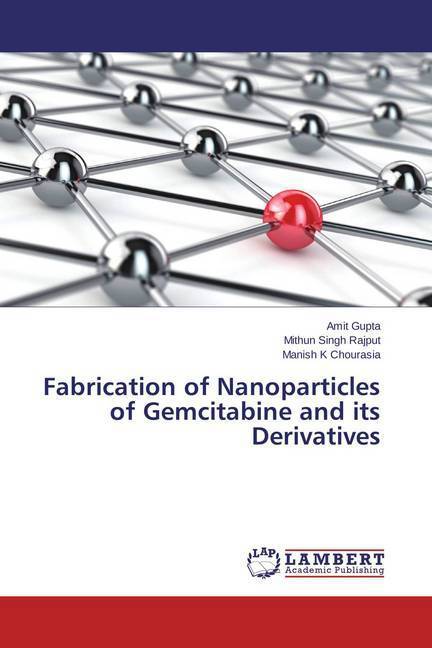
Bedankt voor het vertrouwen het afgelopen jaar! Om jou te bedanken bieden we GRATIS verzending (in België) aan op alles gedurende de hele maand januari.
- Afhalen na 1 uur in een winkel met voorraad
- In januari gratis thuislevering in België
- Ruim aanbod met 7 miljoen producten
Bedankt voor het vertrouwen het afgelopen jaar! Om jou te bedanken bieden we GRATIS verzending (in België) aan op alles gedurende de hele maand januari.
- Afhalen na 1 uur in een winkel met voorraad
- In januari gratis thuislevering in België
- Ruim aanbod met 7 miljoen producten
Zoeken
Fabrication of Nanoparticles of Gemcitabine and its Derivatives
Amit Gupta, Mithun Singh Rajput, Manish K Chourasia
Paperback | Engels
€ 58,95
+ 117 punten
Omschrijving
Gemcitabine is a nucleoside analogue, used in various carcinomas such as non small cell lung cancer, pancreatic cancer, ovarian cancer and breast cancer. The major setbacks to the conventional therapy with gemcitabine include its short half-life and highly hydrophilic nature. The objectives of this investigation were to synthesize lipophilic derivative of gemcitabine, evaluate the physiochemical properties, entrapment efficiency, in vitro release, cytotoxicity, and cellular uptake of nanoparticulate formulations containing gemcitabine and stearoyl gemcitabine. We successfully prepared a formulation providing dual protection of gemcitabine against chemical decomposition from plasma catabolism and improve metabolic stability, first by covalently linking the amino group of gemcitabine to a long fatty chain, and then by encapsulating this lipophilic derivative in the formulations. PLGA nanoparticles can act as carriers for both lipophilic and hydrophilic drugs.
Specificaties
Betrokkenen
- Auteur(s):
- Uitgeverij:
Inhoud
- Aantal bladzijden:
- 100
- Taal:
- Engels
Eigenschappen
- Productcode (EAN):
- 9783659666131
- Verschijningsdatum:
- 19/12/2014
- Uitvoering:
- Paperback
- Afmetingen:
- 150 mm x 220 mm
- Gewicht:
- 159 g

Alleen bij Standaard Boekhandel
+ 117 punten op je klantenkaart van Standaard Boekhandel
Beoordelingen
We publiceren alleen reviews die voldoen aan de voorwaarden voor reviews. Bekijk onze voorwaarden voor reviews.









